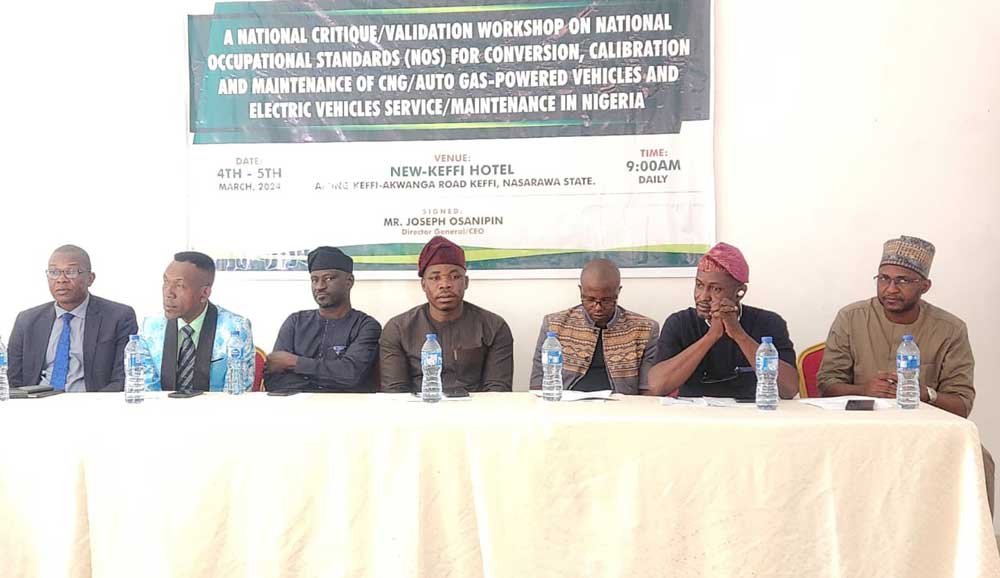NADDC To Deploy National Standards For Technicians Of Electric, Auto Gas-Powered Vehicles
The Federal Government, through the National Automotive Design and Development Council, is working on a dradt National Occupational Standards for Electric Vehicles and Compressed Natural Gas/Auto Gas-powered vehicles in Nigeria.
The Director-General, National Automotive Design and Development Council, Joseph Osanipin, said this at the Critique/Validation Workshop for the recently developed National Occupational Standard, NOS, in Keffi on Monday
Advertisement
He reiterated the federal government’s commitment to diversifying the country’s energy mix to Compressed Natural Gas, CNG, adding that this will create more jobs and wealth for Nigerians.
The NOS is for the conversion, calibration, and maintenance of CNG/autogas-powered vehicles and electric vehicles service/maintenance in Nigeria.
He said the NADDC is promoting the development of CNG/Auto Gas-Powered and Electric Vehicles in Nigeria and creating the enabling environment for them to thrive.
This, he noted, will reduce the dependency on petrol and diesel and mitigate environmental concerns (greenhouse gas emissions).
Advertisement
The NADDC Boss said, “The development of the NOS you are about to discuss is a testament to the efforts the council is making to ensure skills development and upgrade in the automotive sector.
“NADDC is promoting the development of CNG/Auto Gas-Powered and Electric vehicles in Nigeria and creating the enabling environment for them to thrive.
“This will reduce the dependency on petrol and diesel and mitigate environmental concerns (greenhouse gas emissions).
“It is also a means of diversification of the Nigerian economy and will lead to more job opportunities and wealth creation for Nigerians.”
According to the NADDC boss, the essence of the workshop is to ensure that inputs of all relevant stakeholders are captured in the making of this national document.
Advertisement
He said: “It is expected that the document that will come out of these efforts will be of international standards and help to drive the auto sector to its well-deserved position globally.
“When fully operational, the framework will place out-of-school children, working adults, graduates, and apprentices at both formal and non-formal settings with skill acquisition and competency.
“I therefore urge all of you to give this national assignment the best it deserves.”
According to Osanipin, the NOS has been developed through the collaborative efforts of all relevant stakeholders in the automotive sector.
While restating the importance of CNG, the director-general emphasised the need for training, which he said would not be possible without a guideline/manual.
“The key areas of CNG training have to do with the conversion, storage, transportation, calibration, and maintenance among others.
Advertisement
“We need to conduct training, and for you to conduct the training, there must be a manual for those training to be done,” he said.
On readiness, he said various stakeholders from different sectors were involved who would play different roles.
The stakeholders include academicians, technicians, and people already working on CNG conversions, ITF, SON, and more that have come together to develop this manual.
“And by the time we develop this manual, it will put the artisans through the necessary training.
“It is competency based training that will ensure the real technical know-how is transferred to the artisan so that we will be able to develop technical aspects of the CNG.
“No country had everything going for them at once. We have to train people to acquire the knowledge, and so, this is the process we have started now,” he added.
On high cost of conversion of CNG vehicles, Mr Osanipin said,“when you look at the cost of maintaining your vehicle in the long run, you will see the advantage therein in CNG.
“The cost is not that much when you look at the benefits, so we are focusing more on the benefits.



